CBN vs CBD: A Detailed Comparison of Two Popular Cannabinoids
🔑 Key Takeaways
* CBD (Cannabidiol) and CBN (Cannabinol) are both naturally occurring cannabinoids found in the cannabis plant.
* CBD is non-psychoactive and commonly used to help with anxiety, pain, inflammation, and general wellness.
* CBN has mild psychoactive effects and is primarily valued for its calming and sleep-supportive properties.
* While CBD is widely available and affordable, CBN is more expensive and less common due to its complex production process.
* When combined, these cannabinoids may offer enhanced therapeutic effects by working together through the entourage effect.
As the cannabis industry continues to evolve, more people are exploring not just CBD but other cannabinoids like CBN. If you’re wondering about the differences between CBN and CBD, you’re not alone. These two compounds share similarities, but their effects, uses, and even prices vary significantly.
In this detailed guide, we’ll explore everything you need to know about CBN vs. CBD, including their chemistry, benefits, side effects, costs, and how to use them effectively. Whether you’re a wellness enthusiast or just curious about cannabinoids, this article will provide the clarity you need.
What Are CBD and CBN?
CBD (Cannabidiol) and CBN (Cannabinol) are both phytocannabinoids—compounds naturally found in the Cannabis sativa plant. While CBD is well-known and widely available, CBN is a lesser-known cannabinoid gaining attention for its sedative and therapeutic properties. For a deeper dive into phytocannabinoids and how they work in the body, read our other article on phytocannabinoids.
Chemical Composition and Origin
* CBD is typically derived from hemp plants, especially those bred to contain high CBD and low THC levels.
* CBN is a byproduct of THC degradation. Over time, when THC is exposed to heat, light, or oxygen, it breaks down and forms CBN.
Though they originate differently, both compounds interact with the body’s endocannabinoid system (ECS)—a network of receptors that help maintain balance in functions such as sleep, mood, appetite, and immune response.
Psychoactive Properties
* CBD (Cannabidiol) is non-psychoactive and does not produce a “high.” It may promote relaxation or mental clarity without intoxication. It primarily interacts with CB2 receptors, which are more involved in immune function and inflammation.
* CBN (Cannabinol) is mildly psychoactive. Formed as THC oxidizes over time, it retains a small fraction of THC’s mind-altering potential. The psychoactive effects of CBN are very subtle—more sedating than euphoric. It may weakly bind to CB1 receptors in the brain.
In summary:
- CBD: Non-intoxicating; calming without a high.
- CBN: Mildly psychoactive; primarily sedative.
These properties make both cannabinoids appealing to users who seek therapeutic effects without cognitive impairment.
How Are CBD and CBN Similar?
CBD and CBN share several important characteristics:
* Natural Origin: Both are phytocannabinoids derived from cannabis.
* Non-Intoxicating Nature: Neither causes a euphoric high.
* Interaction with the ECS: Both influence CB1 and CB2 receptors, affecting mood, pain, inflammation, and more.
* Therapeutic Potential: Early research and anecdotal reports suggest anti-inflammatory, analgesic, and neuroprotective effects.
* Delivery Methods: Available in oils, tinctures, capsules, edibles, and topicals.
* Low Risk of Side Effects: Both are generally well tolerated.
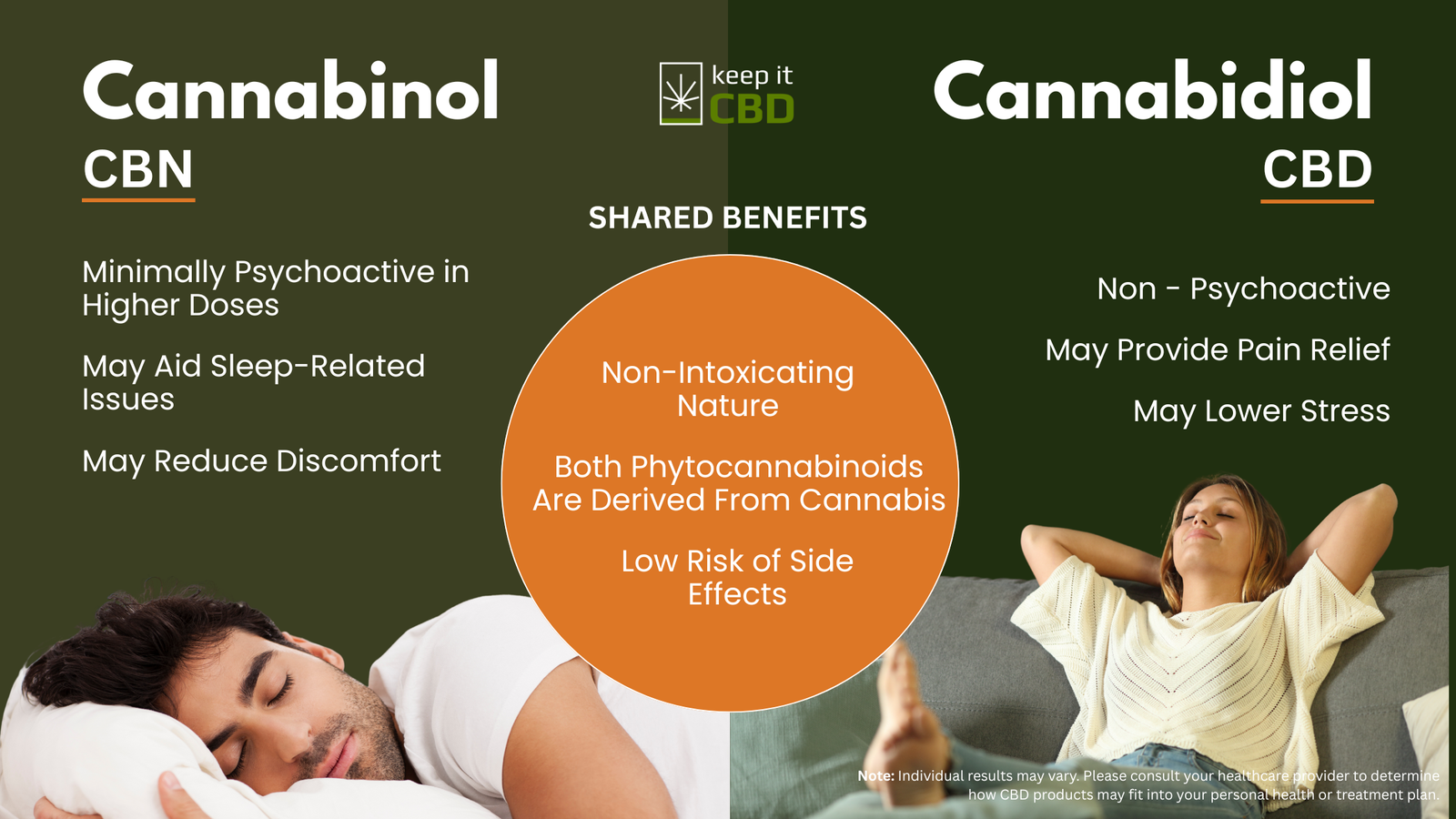
How Are CBN and CBD Different?
| Feature | CBN | CBD |
|---|---|---|
| Origin | Derived from oxidized THC | Extracted from hemp |
| Psychoactivity | Mildly psychoactive | Non-psychoactive |
| Availability | Less common and more expensive | Widely available |
| Common Uses | Sleep aid, sedation, pain relief | Anxiety, inflammation, chronic pain |
| Research Status | Limited but growing | Extensive scientific studies |
| Mechanism of Action | Weakly binds to CB1 receptors | Primarily interacts with CB2 receptors |
| Duration of Effects | 4–6 hours (often used as sleep aid) | 4–8 hours (varies by dose/form) |
| Taste Profile | Earthy, slightly muskier | Earthy, nutty |
| Product Types | Sleep formulas, tinctures, softgels | Tinctures, capsules, edibles, topicals |
| Cost per mg | Higher due to scarcity | More affordable |
| Entourage Effect | Often paired with CBD for sleep | Works well with other cannabinoids |
| Suitability for Daytime Use | Better suited for nighttime | Excellent for daytime |
| Side Effects | Drowsiness, dizziness | Fatigue, dry mouth (rare) |
| Legal Status | Legal in most areas; check local laws | Legal in most places |
CBD Benefits and Uses
CBD is one of the most well-studied cannabinoids. Key uses include:
* Anxiety and stress relief
* Chronic pain management
* Anti-inflammatory support
* Seizure control (e.g., in epilepsy)
* Skin conditions (e.g., acne, psoriasis)
Effects of CBD
Users often report:
* Calmness
* Mental clarity
* Reduced pain
* Improved sleep (indirectly)
* Better focus
CBD typically does not cause drowsiness unless taken in high doses or with other sedatives.
CBN Benefits and Uses
CBN is associated with:
* Sleep support (helps with sleep onset and duration)
* Anti-inflammatory effects
* Appetite stimulation
* Pain relief
* Neuroprotection (potential in ALS or Parkinson’s)
Though research is still early, CBN is a promising option for insomnia or chronic pain.
CBD vs CBN: Side Effects
Both cannabinoids are considered safe, but side effects can occur:
CBD Side Effects: Dry mouth, diarrhea, appetite changes, fatigue (in higher doses)
CBN Side Effects: Drowsiness, dizziness, grogginess (especially during daytime use)
Can You Mix CBD and CBN?
Yes. Many sleep-focused products combine both for a synergistic effect. CBD eases anxiety and promotes relaxation, while CBN supports sedation and sleep. Together, they can amplify benefits through the entourage effect—the enhanced effectiveness of cannabinoids when used together.
Why Is CBN More Expensive Than CBD?
CBN tends to cost more because of:
* Scarcity: Found in small amounts in aged cannabis.
* Production Difficulty: Requires oxidation or chemical conversion from THC.
* Limited Supply and Demand: Fewer producers offer CBN products.
As demand and production methods improve, prices may stabilize.
CBD vs CBN: Therapeutic Uses
| Condition | CBD | CBN |
|---|---|---|
| Anxiety | ✔ | Possibly (less research) |
| Pain | ✔✔✔ | ✔✔ |
| Inflammation | ✔✔✔ | ✔✔ |
| Sleep Disorders | ✔ (indirect) | ✔✔✔ (direct sedative) |
| Epilepsy | ✔✔✔ (FDA-approved) | ❌ (not enough data) |
| Appetite Stimulation | ✔ (mild effect) | ✔✔ |
Dosage Guidelines
* CBD: Start with 10–20 mg per day, increasing gradually. Severe conditions may require higher doses.
* CBN: Effective at lower doses (e.g., 5–10 mg for sleep). Often paired with CBD.
Always consult a healthcare provider before starting either cannabinoid.
Product Types
You can find CBD and CBN in:
* Tinctures: Fast-acting with precise dosing
* Capsules: Convenient and tasteless
* Gummies/Edibles: Easy to consume; long-lasting
* Topicals: Best for localized pain or skin issues
* Vape Products: Fast absorption, though not suitable for all users
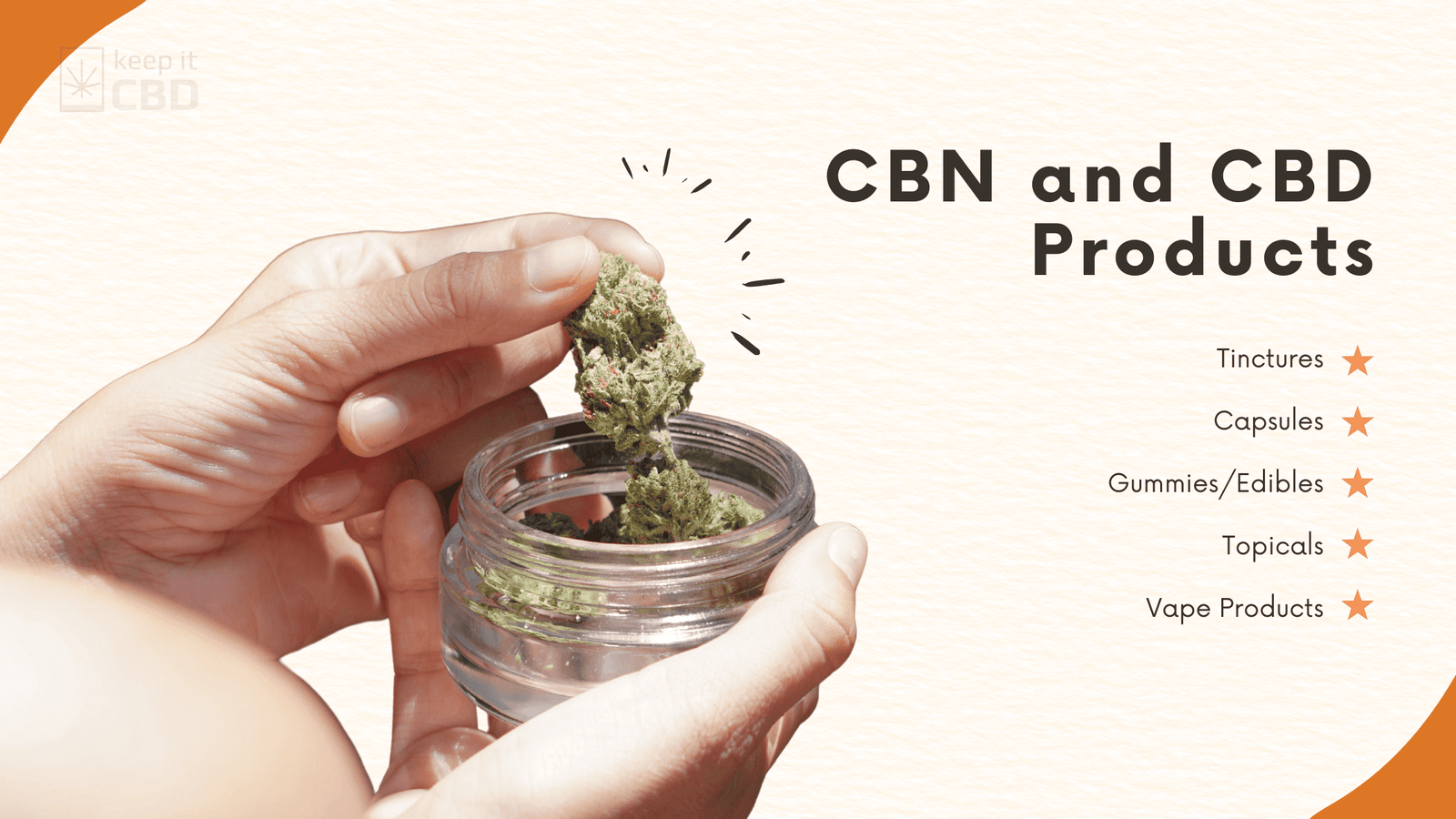
Risks and Precautions
* Avoid mixing with alcohol or sedatives.
* Always check for third-party lab reports (COAs).
* Start with low doses to assess tolerance.
* Pregnant or breastfeeding individuals should consult a doctor before use.
Conclusion: Which Should You Choose?
* Choose CBD for daily wellness, anxiety, inflammation, or chronic pain.
* Choose CBN for sleep issues or relaxation.
* Use both together for enhanced nighttime support.
Both cannabinoids hold exciting therapeutic potential. As research expands, so will the ways they can improve well-being.
FAQs Around CBN vs CBD
Is CBN stronger than CBD?
Not necessarily. CBN is not considered stronger overall, but it has a more sedative effect, making it ideal for sleep-related concerns. CBD, on the other hand, is more versatile and has been extensively studied for a wide range of health benefits including anxiety, inflammation, pain, and seizures. The “strength” really depends on the effect you’re seeking.
Can I take CBN during the day?
Yes, you can take CBN during the day, but keep in mind that it often causes drowsiness or sedation. It’s typically recommended for nighttime use or when you don’t need to be alert, such as before bedtime. For daytime wellness, CBD is a more appropriate choice as it helps you stay calm without affecting your energy levels.
How long do the effects of CBD and CBN last?
The effects usually last between 4 to 8 hours, depending on the form of consumption and your individual metabolism. Edibles and capsules take longer to kick in but last longer, while tinctures and vapes act faster with a shorter duration. Always start with a small dose to gauge your personal response.
Do CBD and CBN interact with medications?
Yes, both CBD and CBN can interact with certain medications, particularly those that are metabolized by the liver (CYP450 enzyme system). This includes some antidepressants, blood thinners, and anti-seizure medications. To stay safe, always consult your healthcare provider before adding any cannabinoid to your routine, especially if you’re on prescription drugs.
Do CBD or CBN show up on a drug test?
CBD typically does not appear on standard drug tests, as it contains no THC. However, CBN may cause a false positive, especially if taken in high doses or if the product contains trace amounts of THC due to poor manufacturing. To avoid this, always choose third-party tested, THC-free products.
Which is better for pain relief: CBD or CBN?
CBD is better documented for managing pain, especially chronic and inflammatory pain. However, CBN may enhance the pain-relieving effects of CBD when used together, especially in formulations targeting nighttime discomfort. They work well synergistically, thanks to the entourage effect.
Is CBN legal?
In most regions, CBN is legal anywhere CBD is legal, as long as it’s derived from hemp and contains less than 0.3% THC. However, laws vary by country and state, so it’s always a good idea to double-check your local regulations before purchasing or using CBN products.
Can pets use CBD or CBN?
CBD is widely used in pet wellness products for issues like anxiety, joint pain, and inflammation. CBN is less studied in animals and is not commonly included in pet formulations. If you’re considering either cannabinoid for your pet, especially CBN, consult a veterinarian experienced with cannabis-based treatments.
Where can I find high-quality CBD and CBN products?
For safe and effective options, shop through reputable dispensaries and brands listed on KeepItCBD. Always check for third-party lab reports (Certificates of Analysis) to verify purity, potency, and absence of contaminants like heavy metals or residual solvents.
For more cannabis education, reviews, and the best CBD dispensary listings worldwide, stay with KeepItCBD—your trusted source in the cannabinoid universe.
KeepItCBD Knowledge Hub
Read related posts:
3 Comments
[…] CBD (Cannabidiol) and CBN (Cannabinol) are both phytocannabinoids—compounds naturally found in the Cannabis sativa plant. While CBD is well-known and widely available, CBN is a lesser-known cannabinoid gaining attention for its sedative and therapeutic properties. For a deeper dive into phytocannabinoids and how they work in the body, read our other article on phytocannabinoids. […]
[…] Want to dive deeper into how cannabinoids work and their different types? Read our full guide on Cannabinoids for a more comprehensive […]



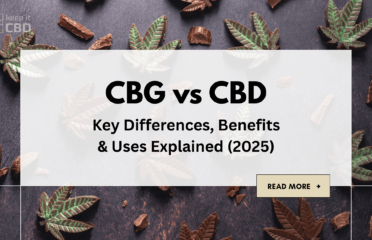
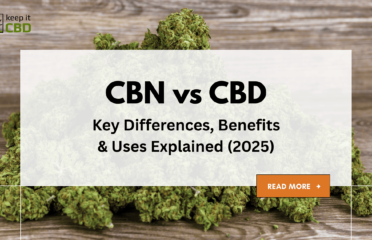
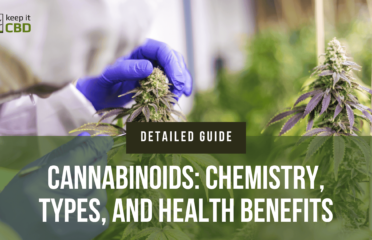
Nicely written and the most updated post on Cannabinoids for all. Short and to-the point information. Thanks for your efforts team.